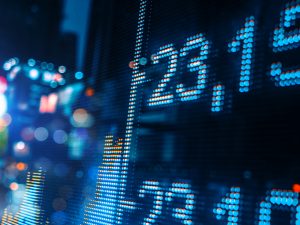
When you are thinking about trading in Forex in Kenya, you need to know the rules and regulations governing the industry. These rules include taxation, brokers and regulations. However, you also need to know about the customer service. In this article, you will learn how to choose a broker and what to look out for.
Regulations
The new Kenyan forex regulations came into force on the 25th of August 2017. They are designed to protect the interests of investors and create a friendly environment for online trading. One of the most important changes is the requirement for forex brokers to hold a valid license in the country. If they do not, it is illegal to trade on their platform.
Forex brokers in Kenya are regulated by the Capital Markets Authority. Traders must open their accounts with a CMA-regulated broker to make sure their funds are protected. If your broker goes out of business, you can get compensation up to Kes. 50,000 if you have invested your money through them. There are six CMA-regulated brokers in Kenya: EGM Securities, Scope Markets, Pepperstone, HotForex Kenya, Windsor Markers, and M-Forex.
Brokers
If you are planning to trade in the Forex market, it is a good idea to know about the Kenyan regulations first. This will help you avoid unnecessary expenses and risky investments. Kenyan brokers are regulated by various top regulatory bodies, including the Cyprus Securities and Exchange Commission (CSEC) and ASIC (Asia Pacific). They offer a variety of trading instruments and features, including innovative tools and valuable research. Some of them even offer educational resources to help beginners. Lastly, they provide a number of perks, including a freeze on trading fees, low minimum balance requirements, and great customer service.
The currency exchange in Kenya is regulated by the Capital Markets Authority (CMA). The Central Bank of Kenya may also implement its own local regulation. Before choosing a broker, be sure to check the CMA's criteria.
Taxes
If you are thinking of entering the world of Forex trading in Kenya, then it's essential that you understand the rules and regulations. The first rule is that you can only trade in a currency that is recognized by the Kenyan Central Bank. Other countries may allow you to trade in a foreign currency, but if you want to use a Kenyan currency, you must be a resident of the country. There are a few exceptions to this rule, so you should check with your banker or tax advisor before you start trading in a foreign currency.
If you want to trade in Forex in Kenya, you should look for a broker that is registered with the Capital Markets Authority. This agency is a respected regulator and has strict laws in place. The Capital Markets Authority has overseen the launch of many complex financial products on the Nairobi Stock Exchange, including the foreign exchange market. In Kenya, there is no maximum leverage allowed for Forex trading, though some of the best brokers offer up to 400:1 leverage. If you have a large sum of money, you should consider opening a trading account with a broker that is regulated by the CMA. The CMA also does not require Forex brokers to provide you with a deposit protection plan. This can be a concern for retail investors in Kenya.
Customer service
If you are considering putting your money on the Forex market, it is a good idea to get all the information you can about the different rules and regulations that govern Forex trading in Kenya. Firstly, you should always ensure that your broker is regulated. Then, you should consider the different types of accounts available, such as ECN accounts, cent accounts, and Islamic accounts. Depending on your preferences, you can choose from a variety of currency pairs and account types.
The foreign exchange market in Kenya is regulated by the Capital Markets Authority, which ensures the safety of your money. Traders should ensure that they choose a broker that is regulated by the CMA. By doing this, you can be sure that your money is safe and will be returned to you if your broker goes out of business. There are six CMA regulated forex brokers in Kenya.
Minimum capital requirements
Foreign dealers who are registered in Kenya must meet the capital requirement of Sh50 million to be eligible to trade in the Kenyan forex market. Moreover, these foreign dealers must be regulated by the Capital Markets Authority. As a result, traders should only patronize forex brokers licensed by the Authority. This is crucial for the protection of investor funds, as unlicensed forex brokers can impose great risks to traders.
There are a number of brokers in Kenya that offer different account types. These brokers offer different features and the minimum balance for an account will vary. Some brokers accept only cent accounts, while others offer ECN or Islamic accounts. Most brokers offer these account types and have varying capital requirements. Some brokers require only a small deposit, while others require a minimum of $500 to open an account. While this amount is low, it still allows traders to open sizeable trading positions and make profits.

Kenya has recently introduced a new spot metal market that is designed to provide a safe haven for scrap metal. The metals included in this market include gold, silver, copper and iron ore. However, traders have been complaining about the regulations and hefty fees. In an effort to curb the problems, the government is establishing a multi-agency vetting team that will examine each application. The team will be headed by a county commissioner.
Silver
In terms of value, the spot metal market for silver in Kenya is worth $X, a figure that includes both wrought and unwrought silver. It is a market that reflects the total revenues from producers and importers, excluding the cost of logistics and retail marketing. It also includes the margins of retailers. While the market is relatively small, it is expected to grow at a rate of approximately X percent a year.
Copper
The price of copper is a sensitive commodity, and the price fluctuates according to a number of fundamental factors. These factors include the state of the economy, potential supply issues, and the housing market, among others. In times of strong economic growth, demand for copper can increase due to infrastructure developments. However, during times of economic decline, projects requiring large amounts of copper may slow down or fail.
Gold
Kenyan investors can now participate in the international gold spot metal market through the Standard Investment Bank. The bank has a money manager licence from the CMA, which allows it to invest and trade commodities on behalf of clients. The bank requires a minimum deposit of Sh250,000 for a transaction to be completed. However, local investors must still purchase gold and silver in physical form or use offshore dealers that are not regulated by the Kenyan government.
Precious metals
The spot precious metals market in Kenya is a popular place for people to buy and sell precious metals. Prices can fluctuate widely depending on the demand and supply of the metal. The last quarter of the year sees a surge in demand around holidays and festivals around the world. This also results in higher prices.
Scrap metal exports to India
Kenya exports 13,000 tonnes of scrap metal every year and an average of 1,083 tonnes per month. The majority of Kenyan scrap metal exports go to India, with the United Arab Emirates and Thailand following close behind. Kenya exports a very small amount of scrap metal to Rwanda.
Scrap metal theft
Scrap metal theft is a major problem in Kenya, but the government is attempting to curb the problem by imposing a ban on the scrap metal market. The ban, which came into effect on 20 January, aims to stop thieves from destroying the country's public utilities, road and rail infrastructure. Unlicensed traders face hefty fines and even jail sentences. They are also required to carry a license copy on their vehicles.